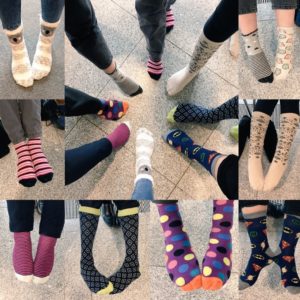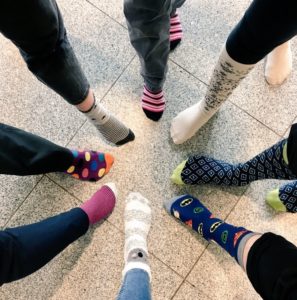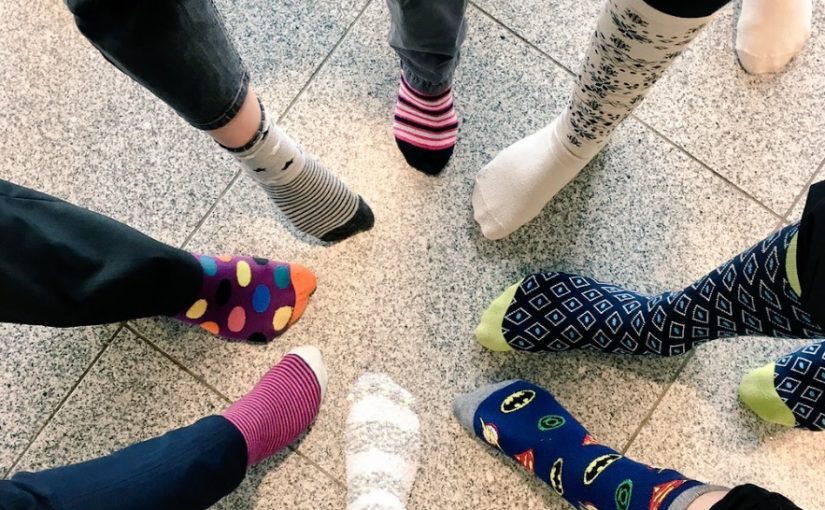It is estimated that approximately 1.25 million people suffer from an Eating Disorder in the UK alone, and as a form of mental illness where the causes are still not fully recognised, it is important that we raise awareness and understanding around Eating Disorders and their associated symptoms.
On average, 149 weeks pass before those experiencing symptoms of Eating Disorders seek help –almost 1,043 days.
So what exactly is an Eating Disorder?
Eating Disorders are a type of mental illness, where the victim has an unhealthy attitude towards food. This can take over their life and make them severely ill. Typical behaviour of someone suffering from an Eating Disorder can include mannerisms such as:
- Limiting the amount of food they eat
- Eating very large quantities of food at one time
- Getting rid of food eaten through unhealthy means such as vomiting or using laxatives
- Mood swings that are determined by their food intake
Types of Eating Disorders include Anorexia, Bulimia, Binge Eating Disorder and OSFED (Other specified feeding and eating disorder).
Who suffers from Eating Disorders?
It’s important to understand that anybody can suffer from an Eating Disorder – They can influence anyone at any time, and it is becoming increasingly important that we do not associate Eating Disorders with stereotypes as these can be extremely harmful.
Studies have suggested that girls and young women between the ages of 12-20 are seen as most at risk, however similar studies have also shown that up to 25% of people who suffer from Eating Disorders are male.
Although figures have been taken from past research, current professors do fear that the number of sufferers amongst men, boys, older people, and people from ethnic or cultural minorities could be much higher due to the power of stereotyping which may sadly be causing these individuals to be reluctant in seeking help.
What can we do to help?
The aim of Eating Disorders Awareness Week (EDAW) is to raise awareness and get people talking about Eating Disorders and the types of support available to those who are suffering. As taken from the BEAT website (www.beateatingdisorders.org.uk), the focus point of the campaign is to ‘tackle stigma and misunderstanding, and to help people understand that they are not alone.’
In many cases, Eating Disorders are treatable and despite tales told in society, people who suffer from Eating Disorders can make a full recovery.
Can we get involved?
To combat the stigma surrounding Eating Disorders, BEAT is running a ‘Sock it to Eating Disorders’ campaign this year as part of Eating Disorders Awareness Week. Open for everyone to join in, BEAT are asking us to dig out our brightest, boldest and silliest socks in the draw and wear them alongside donating to raise awareness and help BEAT to provide much needed support to those affected by Eating Disorders.
Take a look at our Faculty of Health Professional Support Staff wearing their craziest pairs of socks to #SockItToEatingDisorders, and remember that if you’d like to join in too, simply upload a photo in your wackiest pair of socks and hashtag #SockItToEatingDisorders to show your support!


Crazy socks in the wash? Not to worry!
BEAT have provided even more fantastic ways in which you can get involved this Eating Disorders Awareness Week, so why not try out one of the following? You could:
- Host a bake sale, dinner party or coffee morning
- Take part in national research and surveys
- Share awareness posts on social media
- Talk to friends, family and colleagues about Eating Disorders awareness
- Encourage education surrounding Eating Disorders in your school or workplace
- Offer to listen to others if you feel they are seeking support
(Don’t forget, that even though Eating Disorders Awareness Week runs from the 26th February – 4th March, suffering sadly doesn’t end there. BEAT work every single day to provide care to thousands of people struggling with Eating Disorders, and so support is greatly appreciated all year round).
For more information on Eating Disorders Awareness Week, please see BEAT:
Website: www.beateatingdisorders.org.uk
Contact: www.beateatingdisorders.org.uk/contact-us
Twitter: @beatED
Facebook: @beat.eating.disorders

